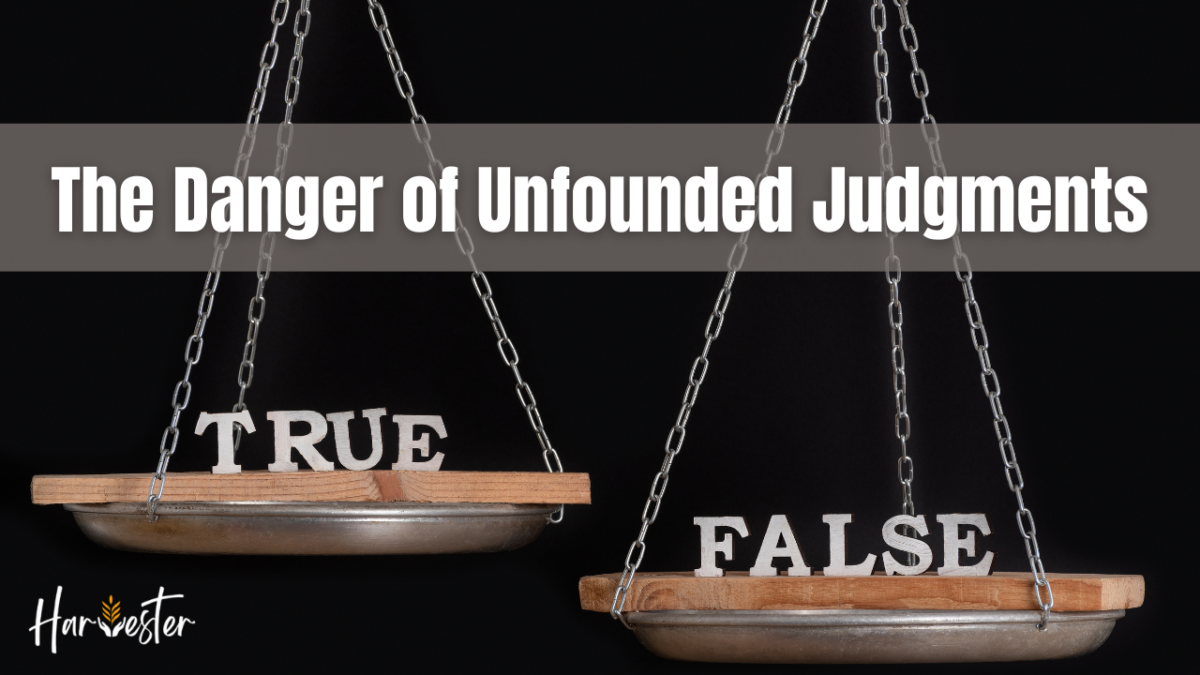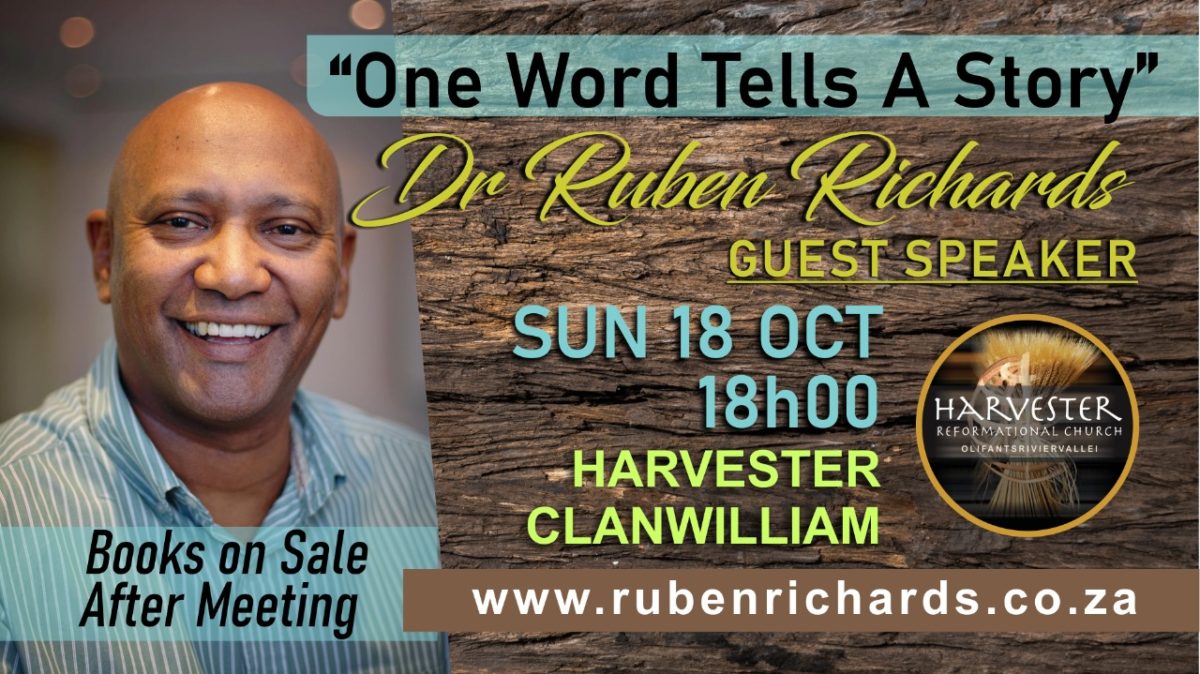In the realm of human interaction, we often find ourselves making judgments about others based on limited evidence or no evidence at all. These hasty conclusions can have far-reaching consequences, leading to gossip, slander, prejudices, stigmas, and stereotyping. Such behaviours can be harmful, both to individuals and society.
We all make judgments as a natural cognitive process to make sense of the world around us and navigate our daily lives. Judgments help us evaluate and categorize information, make decisions, and form opinions about people, situations, and ideas. They serve as mental “shortcuts” that allow us to process vast amounts of information quickly and efficiently. Judgments also affect our social interactions, helping us assess trustworthiness, safety, and compatibility.
The COVID-19 pandemic has brought about significant changes in how people interact, leading to a “great disconnect” in social relationships. One contributing factor is the increased reliance on indirect social media connections. While social media platforms offer a means of staying connected virtually, they often lack the depth and authenticity of face-to-face interactions. People may present curated versions of themselves online, leading to a sense of disconnection and superficiality in relationships.
Moreover, prolonged periods of physical distancing and isolation have reduced opportunities for in-person interactions, resulting in a decline in face-to-face connections. Non-verbal cues, such as facial expressions and body language, which play a crucial role in communication and building rapport, are limited in virtual interactions.
Additionally, the prevalence of fake news, misinformation, and echo chambers on social media platforms has further contributed to the disconnection. People may become isolated within their own “echo chambers”, reinforcing their existing beliefs and disconnecting them from diverse perspectives and experiences.
John 7:24 states, “Do not judge by appearances, but judge with right judgment.” This verse cautions against superficial judgments and emphasizes the importance of employing discernment based on solid evidence. It underscores the moral imperative to exercise fairness and impartiality when evaluating others, highlighting the potential harm that unfounded judgments can inflict.
Biblical Examples of Wrong Judgments
The Pharisees’ Judgement of Jesus:
The Pharisees (religious leaders during the time of Christ), often made erroneous judgments about Jesus, considering Him a blasphemer and false prophet. They failed to recognize His true nature and purpose despite witnessing His miracles and hearing His teachings. Eventually, they justified His malicious and cruel crucifixion! The ultimate example of an INNOCENT falsely convicted to death.
The Misjudgment of Joseph by His Brothers:
In Genesis 37, Joseph’s brothers wrongly judged him based on jealousy and sold him into slavery. They assumed that Joseph’s dreams and favored status indicated youthful arrogance and sought to punish him. However, their misjudgment was redeemed by God by ultimately causing dire circumstances to contribute to Joseph’s rise to power in Egypt.
The Misjudgment of Job by His Friends:
In the Book of Job, Job’s friends wrongly judged him, assuming that his suffering was a result of his sins and wrongdoing. They offered simplistic explanations and false judgments, failing to grasp the complexity of God’s plan and the depths of Job’s faith.
An Innocent Charged and Convicted
A true story of Brian Banks, a promising high school football player, was wrongly accused of kidnapping and rape. Lacking resources, he pleaded “no contest” and spent five years in prison. Determined to prove his innocence when released on parole, he recorded a conversation with his accuser where she confessed her lies and deception. Her motive was to receive handsome compensation with no intention of remorse or repayment. He was eventually released, charges were dropped and through persistent determination, he remarkably managed to secure a try-out with the Atlanta Falcons in 2013. He later played for the Las Vegas Locomotives of the United Football League.
A Moral Psychologist’s View
In his influential work, “The Righteous Mind,” psychologist Michael Haidt explores the moral foundations that shape our judgments and behaviors. Haidt argues that our moral judgments are not solely based on reason but are deeply influenced by our intuitive, emotional responses. These responses are often shaped by our social and cultural backgrounds, which can perpetuate stereotypes and biases.
Haidt proposes six moral values that influence our judgments and shape our moral beliefs.[1] These values are:
- Care/Harm: This value is related to empathy, compassion, and concern for the well-being of others. It involves a sensitivity to the suffering and welfare of individuals. When this value is overemphasized, it can lead to biased judgments based solely on the perceived harm caused to others without considering other moral dimensions.
- Fairness/Cheating: This value revolves around justice, reciprocity, and fairness. It involves a desire for equal treatment and rejecting cheating or taking advantage of others. However, an excessive focus on fairness can lead to a narrow perspective that disregards other moral considerations or the complexity of certain situations.
- Loyalty/Betrayal: This value centers on loyalty, group identity, and commitment to one’s social group or community. When this value is overemphasized, it can lead to biased judgments that favor in-group members and result in discrimination or hostility towards out-group members.
- Authority/Subversion: This value relates to respect for authority, hierarchy, and obedience to social norms or rules. Overemphasis on this value can lead to judgments that prioritize conformity over critical thinking, stifling individuality and inhibiting necessary societal progress.
- Sanctity/Degradation: This value involves reverence for purity, cleanliness, and the avoidance of anything considered impure or disgusting. When this value is excessively emphasized, it can lead to judgments driven by personal aversions or disgust, disregarding the importance of diverse perspectives and the complexity of moral issues.
- Liberty/Oppression: This value pertains to the desire for individual freedom, autonomy, and protection against oppression. However, an extreme focus on liberty can lead to judgments that prioritize individual rights at the expense of communal well-being or fail to address systemic issues and social inequalities.
Trauma Clouds Right Judgment
Recent trauma can have a significant impact on decision-making and lead to false judgments of people. When individuals experience trauma, it can affect their cognitive and emotional functioning, leading to various challenges in processing information and making accurate assessments. Here are a few ways in which recent trauma can influence decision-making negatively:
- Hypervigilance and Fear: Trauma can heighten an individual’s sense of threat and trigger hypervigilance. This heightened arousal can lead to distorted perceptions and interpretations of others’ actions or intentions. It may cause individuals to misinterpret neutral or benign behaviors as threatening, leading to false judgments and biases.
- Cognitive Impairment: Trauma can impair cognitive functioning, particularly in attention, memory, and executive functioning. This impairment can impact an individual’s ability to gather and process information accurately, leading to errors in judgment and decision-making.
- Emotional Dysregulation: Trauma often results in emotional dysregulation, making it challenging for individuals to regulate their emotions effectively. This emotional turmoil can lead to impulsive or irrational decision-making, where decisions are driven by overwhelming emotions rather than sound judgment.
- Negative Filtering and Generalization: Individuals who have experienced trauma may filter negatively, focusing primarily on negative aspects or experiences while disregarding positive information. This filtering can lead to biased judgments and negatively distorted perceptions of others. Additionally, trauma can contribute to generalization, where negative experiences are applied to a broader group, leading to stereotypes and prejudices.
- Trust and Attachment Issues: Trauma can disrupt individuals’ ability to trust others and form secure attachments. This mistrust can influence their judgments of people, making them more likely to assume negative motives or intentions in others, even when unwarranted.
21 Games of the Mind
While there are various cognitive biases and thinking errors that can impact our decision-making, here is a list of 21 common mind traps or cognitive biases that can influence our thinking: Daniel Kahneman
- Confirmation Bias: Seeking or interpreting information in a way that confirms our existing beliefs. Only seek out news sources that align with your political beliefs and disregard opposing viewpoints.
- Availability Heuristic: Relying on easily accessible examples or information when making judgments or decisions. Assuming that shark attacks are more common than they actually are because they receive extensive media coverage.
- Anchoring Bias: Being overly influenced by the first piece of information encountered (the anchor) when making judgments. Deciding on the price to offer for a used car based solely on the initial asking price set by the seller.
- Overconfidence Bias: Overestimating our abilities, knowledge, or the accuracy of our beliefs. Believing that you will perform exceptionally well in a job interview without adequately preparing or researching the company.
- Hindsight Bias: Believing that events were more predictable or foreseeable after they have occurred. Believing that you knew the outcome of a sporting event after it happened, even if you didn’t make any accurate predictions beforehand.
- Gambler’s Fallacy: Believing that past events or outcomes influence future probabilities, even when they are unrelated. Thinking that a coin is more likely to land on heads because it has landed on tails several times in a row, despite the odds remaining the same.
- Halo Effect: Allowing our impression of someone’s positive qualities to influence our perception of their other qualities. Assuming that a physically attractive person is also intelligent or trustworthy without any evidence to support that assumption.
- Sunk Cost Fallacy: Continuing a behavior or investment because of previously invested resources, even if it no longer serves our best interests. Continuously pouring money into a failing business because you have already invested a significant amount of time and resources into it.
- Status Quo Bias: Preferring the familiar or maintaining the current situation rather than considering alternatives. Resisting changes to your daily routine, even if there are clear benefits to making adjustments.
- Bandwagon Effect: Adopting beliefs or behaviors because many others hold them without critically evaluating them. Supporting a political candidate simply because they lead in the polls rather than critically evaluating their policies and qualifications.
- Negativity Bias: Paying more attention to negative information or experiences than positive ones. Focusing on one negative customer review and ignoring numerous positive reviews when purchasing.
- Authority Bias: Overvaluing the opinions or judgments of authority figures or experts. Accepting a medical diagnosis without seeking a second opinion solely because the doctor is considered an expert in their field.
- False Consensus Effect: Assuming that others share our beliefs, values, or attitudes more than they actually do. Assuming that everyone at a party shares your taste in music because most of your friends do, overlooking the diversity of musical preferences.
- Framing Effect: Being influenced by how information is presented or framed. Choosing to purchase a product because it is advertised as “80% fat-free” instead of “20% fat,” despite the information being the same.
- Self-Serving Bias: Attributing successes to internal factors and failures to external factors. Taking credit for a successful project but blaming external factors or colleagues for failures or setbacks.
- Primacy and Recency Effect: Remembering information presented first or last more quickly than information presented in the middle. Remembering the first and last items on a shopping list, forgetting the items in the middle.
- Mindlessness: Engaging in automatic, thoughtless behaviors without conscious awareness or evaluation. Automatically reaching for your phone to check social media notifications without consciously considering if it is the best use of your time.
- Emotional Reasoning: Allowing emotions to guide our reasoning and decision-making. Believing that someone must be untrustworthy because they give you a bad feeling, without any evidence to support that conclusion.
- Personalization Bias: Believing that events or outcomes are primarily about us, even when they are not. Assuming that when a friend cancels plans, it is because they don’t like you, ignoring that they mentioned being sick earlier.
- Fundamental Attribution Error: Overemphasizing dispositional and underemphasizing situational factors when explaining others’ behaviour. Blaming a co-worker’s mistake on their lack of competence while disregarding the stressful circumstances or lack of resources they were facing.
- Social Desirability Bias: Modifying our responses or behavior to align with social norms or expectations. Giving answers on a survey you think are socially acceptable, rather than expressing your true opinions or behaviours.[2]
Emotions Deceive
In her book, “How Emotions Are Made,” Lisa Feldman Barrett challenges the traditional view that emotions are universal, pre-wired responses to specific stimuli. Instead, she proposes that our brains construct emotions based on individual experiences, cultural influences, and learned concepts. According to Barrett, our emotions are not fixed and automatic but relatively flexible and shaped by various factors.
Barrett argues that our emotions are crucial in shaping our perceptions and judgments. When we experience an emotion influences how we interpret and make sense of the world around us. However, since emotions are constructed and influenced by our personal and cultural contexts, they can sometimes lead to false assumptions and judgments.
For example, let’s consider a situation where someone receives a curt email from a colleague. If that person is feeling anxious or insecure, they may interpret the email as hostile or disrespectful, assuming harmful intentions from their colleague. However, if the same email is received when the person is feeling confident and secure, they may interpret it as neutral or even positive.
The emotional state of the individual influences these interpretations and judgments. Emotions can cloud and distort our perceptions and influence how we attribute meaning to events or behaviors. Our emotions can lead us to make assumptions about others’ intentions, motivations, or character, even when there might be little or no evidence to support those assumptions.[3]
Righteous Judgements by the Holy Spirit
Are you tired of witnessing the damaging effects of unfounded judgments? It’s time to take a stand and make a change! Together, we can create a more compassionate and inclusive society.
Here’s how you can get involved:
Pray, Love, and Bless your enemy: By praying for your enemies, those who spitefully use you, and those who persecute you, you become the mediator instead of the accusor.
Reflect: Take a moment (at least 5-minutes) to examine your own biases and prejudices. Are there any unfounded judgments you may have made in the past? Acknowledging them is the first step towards growth.
Educate Yourself: Dive into the works of Lisa Feldman Barrett; Michael Haidt; Daniel Kahneman. Exploring these insightful books will help you gain a deeper understanding of the psychological and moral foundations behind judgments.
Challenge Stereotypes: Be mindful of the stereotypes and prejudices that may influence your judgments. Question their validity and seek out diverse perspectives to broaden your understanding.
Foster Empathy: Cultivate empathy by putting yourself in others’ shoes. Strive to understand their experiences, struggles, and aspirations. Remember, everyone has a unique story.
Engage in Dialogue: Initiate conversations with individuals from different backgrounds. Listen attentively, share your own experiences, and learn from one another. Constructive dialogue is key to breaking down barriers and fostering understanding.
In the END, we are ALL JUDGED by our ACTIONS! From what is deep-seated in our hearts will be heard in our words and language. Our actions are the fruit of our lives.
“By their fruit you will recognize them. Do people pick grapes from thornbushes, or figs from thistles? Likewise, every good tree bears good fruit, but a bad tree bears bad fruit. A good tree cannot bear bad fruit, and a bad tree cannot bear good fruit. Every tree that does not bear good fruit is cut down and thrown into the fire. Thus, by their fruit, you will recognize them.” Matthew 7:16-20 (NIV).
During the recent flooding in our region, you may have had all kinds of judgments against people because of appearances and stigmas, to be proven wrong, people’s actions of love and emphatic care.
Let’s make a collective effort to adhere to John 7:24:
“Do not judge by appearances, but judge with right judgment.”
Together, we can dismantle gossip, slander, prejudices, stigmas, and stereotypes, building a society rooted in fairness, respect, and understanding.
[1] Haidt, J. (2012). Righteous Mind: Why Good People Are Divided by Politics and Religion. Penguin Books, Limited.
[2] https://youtu.be/nYYkRaU0xh8 Thinking, Fast and Slow by Daniel Kahneman https://amzn.to/3Wn6bz8
[3] BARRETT, LISA. FELDMAN. (2020). How emotions are made: The secret life of the brain. PICADOR.



